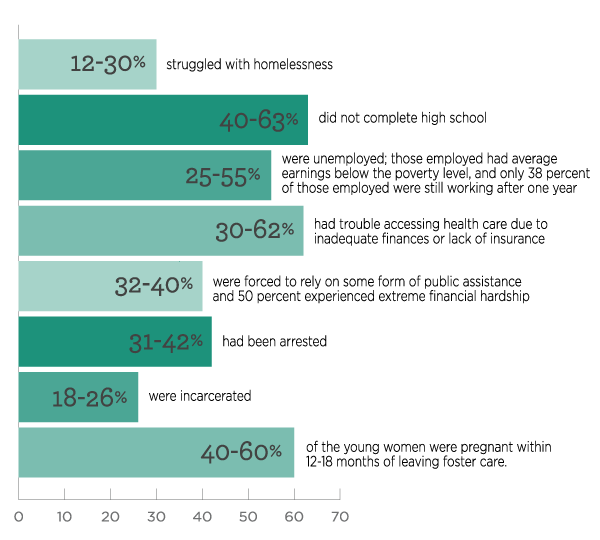When There’s No Going Home

*Photo credit: Getty Images
If you were a college kid, you had a lot to look forward to at the end of November – finals, winter break, packing up your mound of laundry to take home for your mom to clean, sleeping in your childhood bedroom and taking a break from eating Ramen noodles to enjoy home cooked meals. You looked forward to the comfort of going home to familiar surroundings. But for some young adults, going home – during school breaks, over the summer, for the weekend, or ever – is not an option.
Each year, nearly 30,000 young adults are aging out of the foster care system with no permanent family or home. A quote in a recent article in The Huffington Post states,
“These are children that we as a society have decided can have a better chance away from their family of origin, but the fact is when they don’t have meaningful and sustained social connections during their adolescent years, things don’t go well as they emerge into adulthood.” – Susan Kools, RN, PhD, FAAN
Without strong support through this important transition period, many emerging youth end up in undesirable conditions. According to various studies across the country of young people who have aged out of foster care without a permanent family:
Failure to help these youth become self-sufficient, contributing members of society costs us $5.7 billion each year in unemployment, unplanned pregnancies and incarceration. On average, taxpayers and communities pay $300,000 for each young person who ages out of foster care. These are social costs over a lifetime such as public assistance, incarceration and lost wages.
The Huffington Post article recognizes that this vulnerable population needs positive and consistent connections with adults and role models, services to help them advance their education, job skills and training, safe housing, access to health care, and in most cases, mental health care. KVC is leading an initiative to meet all of these needs and create a new national model to help young adults aging out of foster care. Find out more about our proposal to transform the closing Sugar Grove naval base in Pendleton County, West Va. into a specialized career college for youth aging out of foster care and show your support for the #NeverStopCaring Campaign.





